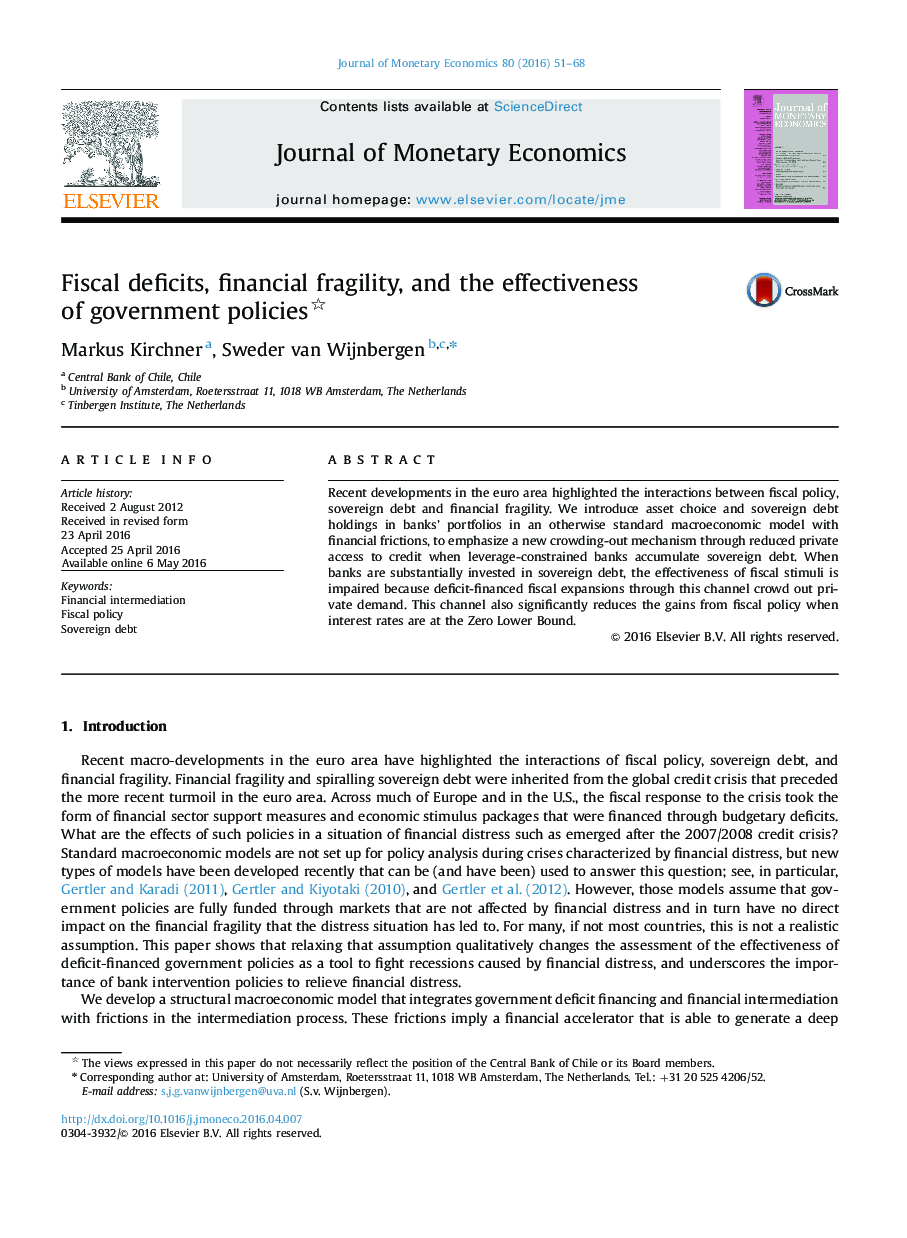| Article ID | Journal | Published Year | Pages | File Type |
|---|---|---|---|---|
| 967547 | Journal of Monetary Economics | 2016 | 18 Pages |
•Fiscal stimuli failed to lift economies out of the recession after the 2007/2008 financial crisis.•Central to our analysis are interactions between financial frictions and sovereign debt.•Undercapitalized banks holding loans and sovereign debt: a new crowding-out channel.•Fiscal multipliers do not increase at the ZLB when there are leverage constraints.•A fiscal stimulus has a larger multiplier when accompanied by bank recapitalization.
Recent developments in the euro area highlighted the interactions between fiscal policy, sovereign debt and financial fragility. We introduce asset choice and sovereign debt holdings in banks’ portfolios in an otherwise standard macroeconomic model with financial frictions, to emphasize a new crowding-out mechanism through reduced private access to credit when leverage-constrained banks accumulate sovereign debt. When banks are substantially invested in sovereign debt, the effectiveness of fiscal stimuli is impaired because deficit-financed fiscal expansions through this channel crowd out private demand. This channel also significantly reduces the gains from fiscal policy when interest rates are at the Zero Lower Bound.
